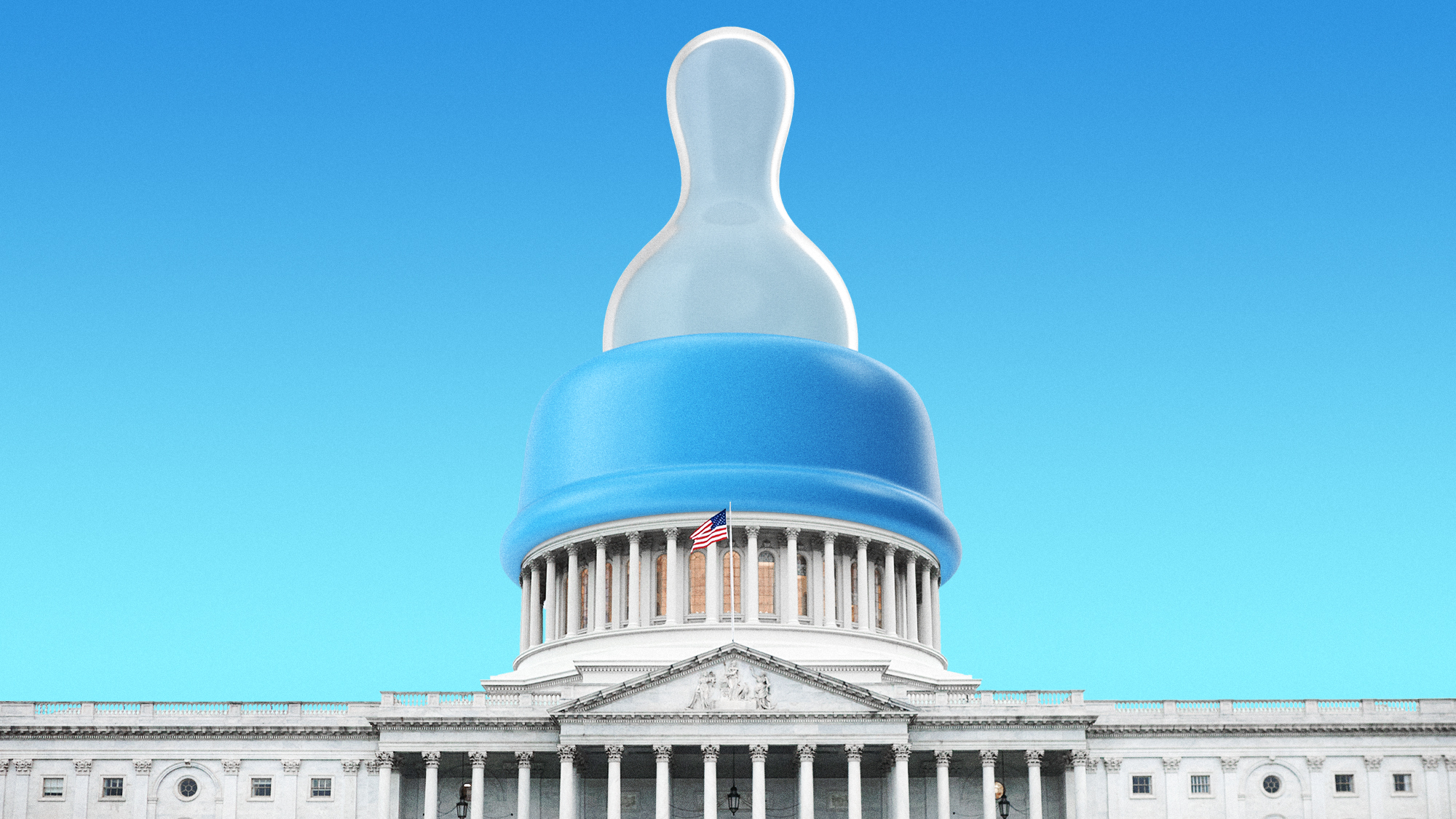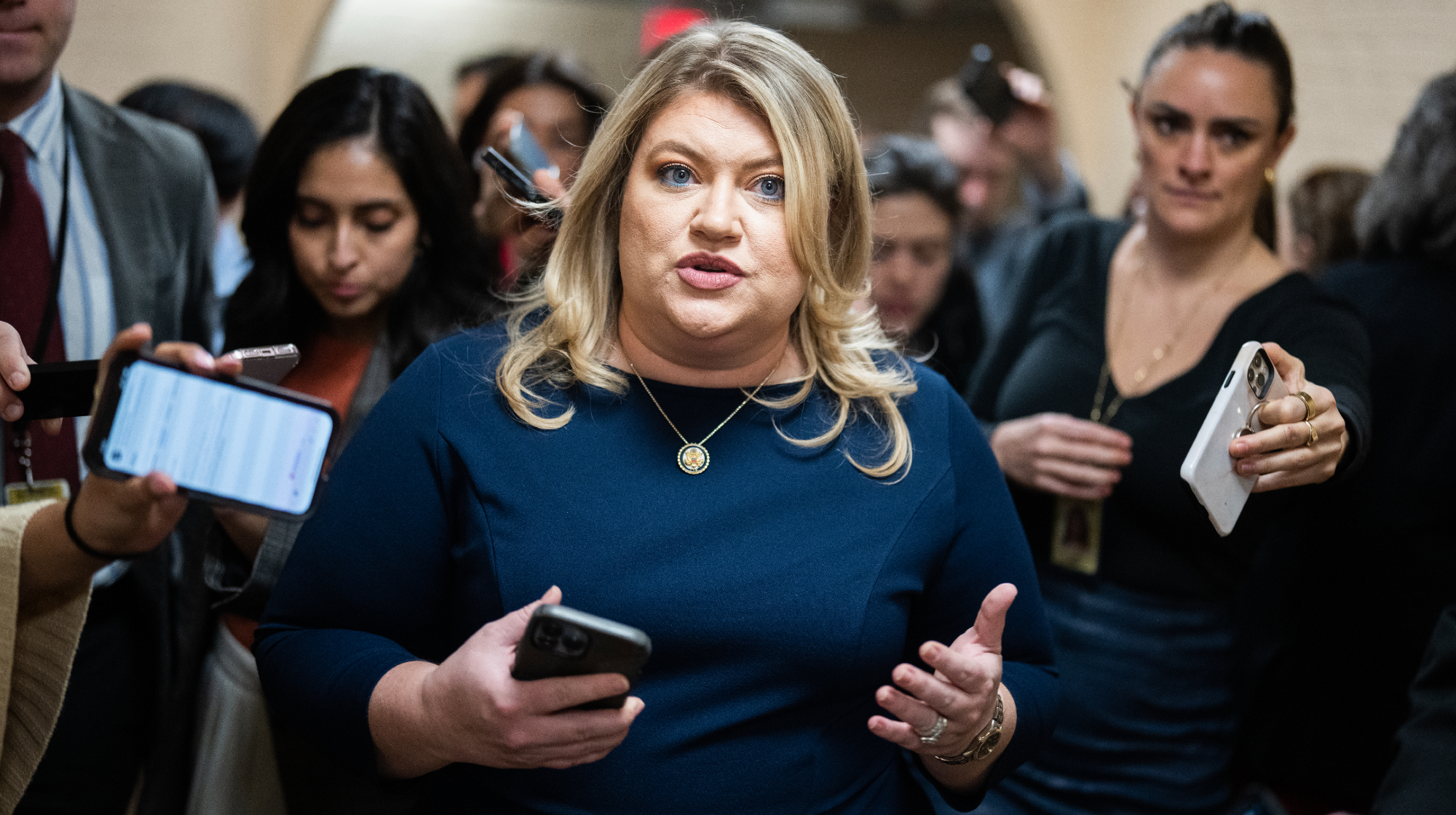Alabama leads US war on abortion
Boycott calls as Bill that could see abortion doctors jailed for up to 99 years is signed into law

A free daily email with the biggest news stories of the day – and the best features from TheWeek.com
You are now subscribed
Your newsletter sign-up was successful
Alabama's Republican-controlled Senate has passed the most restrictive abortion legislation in the US, prompting an outcry from pro-choice activists.
Of the 27 Republicans in the Alabama senate - “all white men”, notes The Guardian - all but two voted in favour of the ultra-restrictive bill.
Under the law - described as “outrageous” and “draconian” by The Cut - a doctor who performs an abortion for any reason except risk to the life of the mother may face being charged with a Class A felony and at least ten years in prison. The maximum sentence is 99 years.
The Week
Escape your echo chamber. Get the facts behind the news, plus analysis from multiple perspectives.

Sign up for The Week's Free Newsletters
From our morning news briefing to a weekly Good News Newsletter, get the best of The Week delivered directly to your inbox.
From our morning news briefing to a weekly Good News Newsletter, get the best of The Week delivered directly to your inbox.
Exceptions will only be made when the woman’s health is at serious risk, with no exemptions for rape or incest.
Even attempting to perform an abortion is categorised as a Class C felony, which carries a maximum sentence of ten years, reports CNN.
The law explicitly targets abortion providers, rather than women who terminate their pregnancies.
After signing the Alabama Human Life Protection Act into law earlier this week, state governor Kay Ivey wrote on Twitter that the legislation “stands as a powerful testament” to the belief that “every life is a sacred gift from God”.
A free daily email with the biggest news stories of the day – and the best features from TheWeek.com
However, in a separate statement, Ivey conceded that the law “may be unenforceable”, owing to the Supreme Court’s 1973 decision in Roe v. Wade - a landmark case that legalised abortion at the federal level, meaning states cannot enact their own bans on the procedure.
But “many Americans, myself included, disagreed” with that ruling, continued Ivey, adding that “it is time, once again, for the US Supreme Court to revisit this important matter”.
Meanwhile, a nationwide movement to boycott Alabama over the abortion row is gaining momentum.
Colorado’s Democratic Secretary of State, Jena Griswold, has “urged the Election Center, an organisation that trains election officials from across the country, to move out of the state”, Reuters reports.
And Maryland’s Democratic Comptroller, Peter Franchot, has warned that he will advise his state’s $52bn pension fund to divest from Alabama, and has urged other states to do likewise, the news agency adds.
“The radical anti-abortion bill signed into law yesterday by the Governor of Alabama is a malicious assault on the rights and protections of women,” Franchot said. “I can work to ensure that Maryland’s taxpayer dollars are not used to subsidise extremism.”
A spokesperson for pro-choice reproductive healthcare provider Planned Parenthood said the group “will see Governor Ivey in court”.
“We have not lost a case in Alabama and look forward to the same outcome,” she added.
The Alabama bill was first put forward just weeks after Kentucky and Mississippi “approved bans on abortion once a foetal heartbeat is detected, which happens as soon as the sixth week of pregnancy”, reports The Guardian.
Staci Fox, president of family planning service Planned Parenthood Southeast, said that blanket bans on abortion services were a “death sentence for women”.
“These bans are blatantly unconstitutional and lawmakers know it - they just don’t care," she said, accusing lawmakers of using women as "pawns in this political game to challenge access to safe, legal abortion nationally".
-
 Film reviews: ‘Send Help’ and ‘Private Life’
Film reviews: ‘Send Help’ and ‘Private Life’Feature An office doormat is stranded alone with her awful boss and a frazzled therapist turns amateur murder investigator
-
 Movies to watch in February
Movies to watch in Februarythe week recommends Time travelers, multiverse hoppers and an Iraqi parable highlight this month’s offerings during the deep of winter
-
 ICE’s facial scanning is the tip of the surveillance iceberg
ICE’s facial scanning is the tip of the surveillance icebergIN THE SPOTLIGHT Federal troops are increasingly turning to high-tech tracking tools that push the boundaries of personal privacy
-
 ‘Officials say exporters pay the tariffs, but consumers see the opposite’
‘Officials say exporters pay the tariffs, but consumers see the opposite’Instant Opinion Opinion, comment and editorials of the day
-
 Costco is at the center of an abortion debate
Costco is at the center of an abortion debateTalking Points The decision to no longer stock the abortion pill came following a pressure campaign by conservatives
-
 Judge halts GOP defunding of Planned Parenthood
Judge halts GOP defunding of Planned ParenthoodSpeed Read The Trump administration can't withhold Medicaid funds from Planned Parenthood, said the ruling
-
 'Singling out crypto for special scrutiny would be misguided'
'Singling out crypto for special scrutiny would be misguided'Instant Opinion Opinion, comment and editorials of the day
-
 The Supreme Court and Congress have Planned Parenthood in their crosshairs
The Supreme Court and Congress have Planned Parenthood in their crosshairsTalking Points Trump's budget bill and the court's ruling threaten abortion access
-
 Supreme Court lets states ax Planned Parenthood funds
Supreme Court lets states ax Planned Parenthood fundsSpeed Read The court ruled that Planned Parenthood cannot sue South Carolina over the state's effort to deny it funding
-
 The ambiguous legal state of ectopic pregnancy care
The ambiguous legal state of ectopic pregnancy careThe Explainer Rep. Kat Cammack's accusations of 'fearmongering' are the latest example of how mixed messages are complicating the debate around abortion
-
 Are free votes the best way to change British society?
Are free votes the best way to change British society?Today's Big Question On 'conscience issues' like abortion and assisted dying, MPs are being left to make the most consequential social decisions without guidance